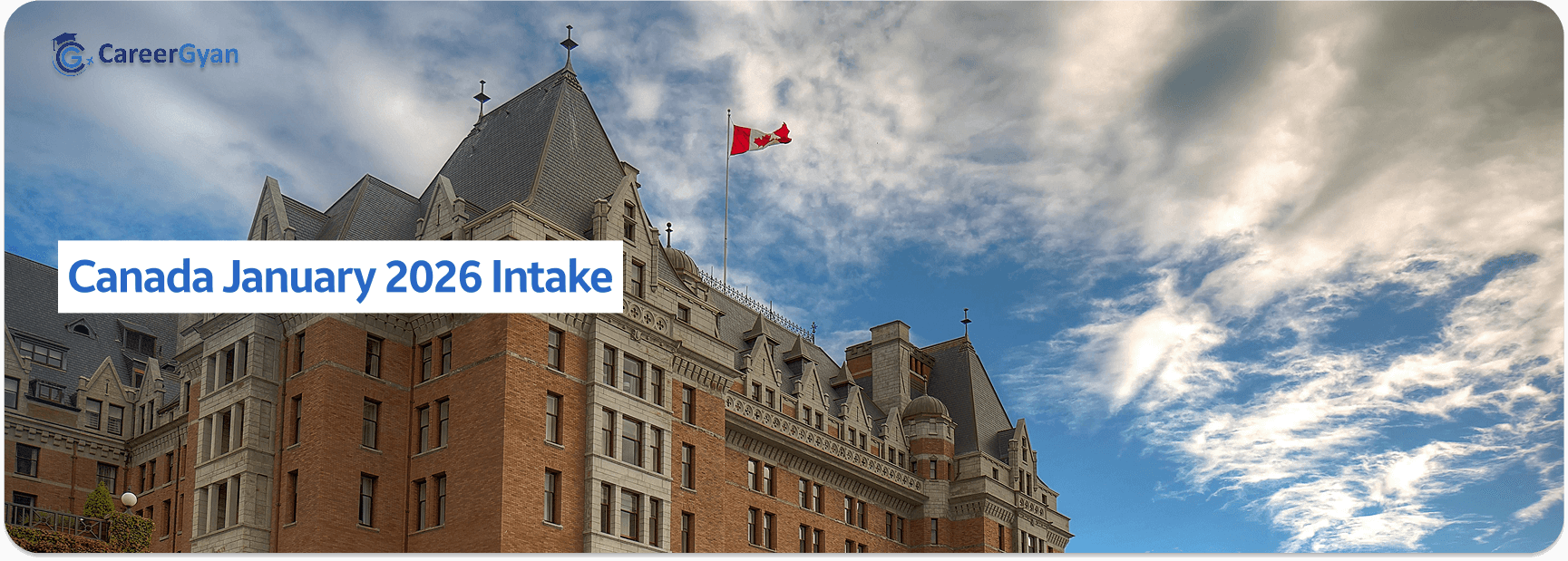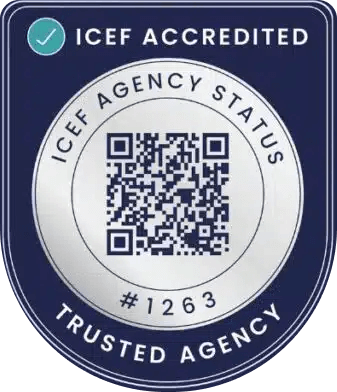 Shiva Krishna
Shiva Krishna

If you are looking to study abroad, Canada often ranks at the top of the list for international students. Canada, which is known for its high-quality education system, safe environment, and diversified culture, attracts thousands of students every year. Most students want to start in September or the fall intake, but not everyone can make it on time. That is why the Canada January 2026 Intake is a great opportunity. Also known as the winter intake, this cycle allows students to start their studies in January and continue through the spring semester. With careful planning, you won't have to wait another year to start your dream study in Canada.
Canadian universities and colleges typically have three intakes per year: fall (September), winter (January), and a summer intake (May). Fall is the most popular of them and has the majority of courses available. But the Canada January 2026 Intake is the second-largest option. Although the number of courses is slightly reduced, it still provides a diverse range of degrees in areas such as business, health sciences, engineering, and computer science. For many students, the January intake serves as a "second chance" to get admission rather than waiting until the following September.
You will have more time to study for language tests like the IELTS or TOEFL and get your transcripts, SOPs, and recommendation letters.
With fewer applicants, your chances of admission may increase. Smaller class sizes might also provide more customized attention from instructors.
If you missed the September intake, the Canada January 2026 Intake provides a convenient alternative without wasting time.
Starting in January allows you to skip the large crowds and hustle of fall orientation. You can get used to things during the quieter months.
Winter intake enrollment may enable you to complete your degree sooner than fall starters provided that you effectively manage your time.
Planning is critical because deadlines sometimes arrive sooner than expected. The preparation phase normally starts in April or May 2025. This is when you should start looking at universities, checking which courses are available, and making a list of programs that fit with your career goals.
By June or July 2025, it is time to concentrate on language exams like IELTS, TOEFL, or PTE. Some graduate programs may also want you to take the GRE or GMAT. At this point, you should start drafting your SOP and requesting recommendation letters from instructors or employers.
The majority of winter intake applications are open between August and October 2025. You should start applying now because certain universities stop taking applications as early as November. A few institutions accept applications till December or early January, but applying late lowers your prospects.
When you receive your offer letters in October or November, you should immediately start the study permit process. Visa applications normally take several weeks; therefore, applying at least three to four months in advance is recommended.
Here are some notable universities with deadlines that will grab your attention:
| University | Approx. Deadline | Popular Fields |
|---|---|---|
| University of Toronto | Jan 15, 2026 (UG) | Engineering, Business, Computer Science |
| McGill University | ~Nov 10, 2025 | Computer Science, Business Administration |
| University of British Columbia | Jan 15, 2026 (Grad) | Data Science, Commerce, Engineering |
| University of Waterloo | Apr 15, 2025 (UG) | AI, Engineering, Business |
| Queen’s University | Aug 1, 2025 (Grad) | Environmental Studies, MBA |
| University of Alberta | Nov 1, 2025 (Int’l) | Engineering, Computer Science, Nursing |
Once you get in, you'll also need your official acceptance letter for the study permit process. The Canadian government might require biometrics, proof of income, and medical exams, depending on your country of origin.
The decision is based on your circumstances. If you require additional time to prepare for tests or paperwork, or if you missed the September intake, the Canada January 2026 Intake may be a good fit. If you want a bustling campus with various programs, you might have to wait until the fall intake.
Consider your comfort level in cold weather, fewer options, and a smaller peer group. If the answer is yes, the winter intake is a great chance to start your studies in Canada without having to wait a whole year.
The Canada January 2026 Intake is an excellent chance for those who want to continue their studies in Canada without waiting until the next fall cycle. It might not have as many programs as September, but it makes up for it with more flexibility, more time to prepare, and a calmer start to student life. With fewer applicants, smaller class sizes, and the opportunity to focus more closely on your goals, this intake has grown in popularity among overseas students looking to enter Canadian colleges on their terms.
If you need assistance in planning your study abroad journey, Career Gyan can be a useful resource. From understanding admission timelines to preparing documents and applying for a visa, Career Gyan provides expert advice to help students avoid confusion and make sound decision. You can confidently enter Canada and begin your academic career in January 2026 if you plan carefully and get the right advice.
Pursuing higher education in Medical and STEM (Science, Technology, Engineering, and Mathematics) fields opens doors.



Countries
2025 © All rights reserved by careergyan.co